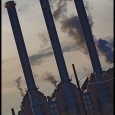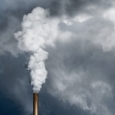Oil, Coal, and Gas Regulations
Oil, gas, and coal are three of the most widely used energy sources in America. Unfortunately, all three take a terrible toll on human populations and the environment, both during the extraction process and use. Government agencies including the Bureau of Ocean Energy Management, Regulation and Enforcement (BOEMRE) and the Environmental Protection Agency (EPA) monitor and regulate these economic sectors, and numerous laws have been passed to address the negative externalities created by these industries.
Commentary
PG&E’s success in Washington led to failure in San Bruno
Cry Wolf Quotes
The other thing that I want to mention by way of example, which is-which will, I am sure, be discussed by others in the industry, is the expansion of the Toxic Release Inventory to cover the oil and gas exploration in the production industry. The IOGCC has been opposed to this and has a committee working specifically to change the minds of the Environmental Protection Agency to do this unnecessary expansion. Not only would it unnecessarily expand the toxic release inventory to an industry that is not appropriate but it would dilute the whole good part of what the toxic release inventory is doing for the States.
The net result could well be a greater probability of oil spills, less likelihood of a responsible owner to deal with those spills, less reliable transportation of oil and greater cost to the consumer; the very things the U.S. wanted to avoid.
Elimination of sections 327 and 328 [of the Safe Water Drinking Act] would not make production of oil and natural gas in the United States any safer, but could substantially increase domestic oil and natural gas production costs, thereby decreasing domestic supply.
This proposed action is a major, paper work intensive, rulemaking that will significantly impact our business, both operationally and financially, and will bring little or no benefit towards improving safety of offshore operations. In addition to the unnecessary burden to industry, it will create an additional unwarranted burden to regional MMS staff that will require additional inspector/auditor training and increased workload demand.



